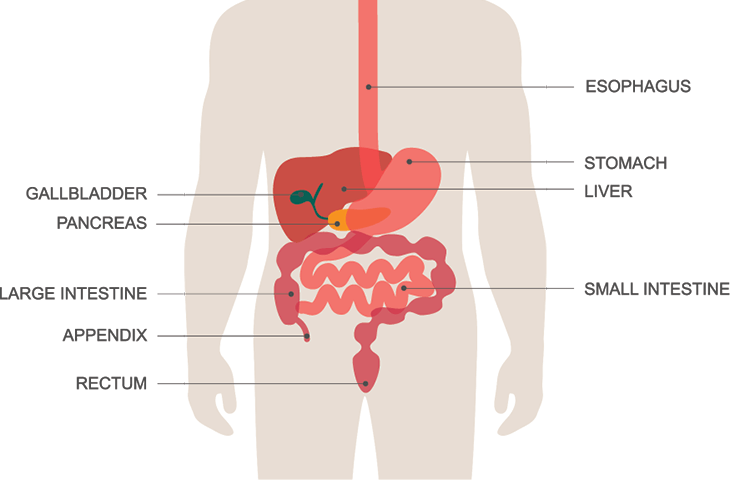Introduction
Living with an ostomy can be an extensive trip that incorporates not only physical modifications but likewise substantial mental adjustments. An ostomy, which involves the production of an opening (stoma) for physical waste to leave with the abdominal wall, is often necessitated by medical problems like cancer, inflammatory digestive tract illness, or injury. While lots of resources offer comprehensive information about stoma care and monitoring-- such as ndis complex bowel care training, complex bowel treatment courses, and stoma treatment training for carers-- the mental impacts are equally as vital yet frequently overlooked.
In this short article, we will certainly check out the myriad emotional aspects of dealing with an ostomy. We'll delve into psychological challenges, coping methods, support systems, and instructional sources available for people and caregivers alike. By raising understanding and understanding of these emotional measurements, we intend to cultivate compassion and provide sensible guidance for those browsing this life-altering experience.
Understanding the Emotional Facets of Coping With an Ostomy
Living with a stoma can stimulate a wide range of emotions-- from fear and anxiety to alleviation and gratefulness. Understanding these sensations is essential for both individuals dealing with an ostomy and their caregivers. It is essential to acknowledge that every person's trip is unique; some may what is an ostomy adjust promptly while others may battle over time.
The Preliminary Shock: Emotional Feedbacks Post-Surgery
When first diagnosed or after surgery, people may experience shock. This response is entirely normal as they refine their new fact:

- Fear of the Unknown: Many people fear what dealing with a stoma requires. Questions emerge like "What will my life resemble now?" or "Will I ever feel normal once again?" Grief Over Loss: The loss of bodily freedom can bring about sorrow over one's previous self-image or lifestyle. Anxiety: Problems about social situations, health, or prospective complications can develop frustrating anxiety.
These initial reactions are commonly worsened by false information or absence of support from family and friends.
Coping Mechanisms: Searching for Equilibrium in Life After Surgery
To browse this psychological tumult, people can adopt different coping systems:
Education: Understanding what a stoma is-- what it involves in terms of everyday care (ostomy care)-- can substantially minimize anxiousness. Resources such as bowel care courses and specific stoma treatment training programs improve knowledge.
Support Teams: Getting in touch with others that share comparable experiences can aid stabilize feelings. Peer support groups provide risk-free rooms to share sensations without judgment.
Therapy: Professional counseling can provide devices to handle anxiety or stress and anxiety effectively.
Mindfulness & Leisure Strategies: Practices such as yoga or reflection can assist ground people amidst emotional turbulence.
Social Effects: Navigating Relationships Post-Ostomy
The social ramifications post-surgery can not be underrated:
- Fear of Judgment: People might stress over just how others perceive their stoma or anxiety ridicule. Changes in Intimacy: Charming partnerships might face difficulties because of body photo concerns or worry connected with intimacy.
Understanding these social characteristics is essential in restoring one's confidence and cultivating healthy relationships.
Building Assistance Networks: Duty of Family & Friends
Support from loved ones plays an essential role in healing:
- Encourage open discussions concerning worries and issues associated with ostomy care. Educate member of the family on what dealing with a stoma entails so they can provide enlightened support.
Engaging in activities together that distract from fears can likewise strengthen bonds.
Educational Resources: Training & Assistance for Ostomy Care
Importance of Stoma Care Training for Carers
Caregivers play a crucial function in the lives of those living with an ostomy. Their capability to manage daily jobs effectively rests on thorough training:
- Training programs such as the ndis complex bowel care training make certain that caretakers comprehend how to give ideal assistance while appreciating the self-respect and self-reliance of their patients. Knowledge acquired via these programs assists impart confidence not only in caretakers however additionally in individuals themselves, easing stress and anxiety connected with ostomy management.
Complex Digestive tract Treatment Program: What You Required to Know
For those associated with looking after individuals needing specialized bowel management:
A comprehensive understanding of bowel wellness is crucial. Courses typically cover topics such as dietary factors to consider, health methods, and emergency protocols connected to digestive tract complications. Completing such courses boosts one's capability to take care of unexpected scenarios effectively.
Bowel Care Management Techniques: Techniques for Success
Effective bowel care management goes hand-in-hand with mental wellness:
- Establishing regimens around digestive tract routines can cultivate a feeling of control. Dietary modifications based on professional recommendations contribute favorably toward total health.
By incorporating self-care practices right into daily regimens, people locate empowerment among uncertainty.
FAQs About Living With an Ostomy
1. What is a stoma?
A stoma is an operatively developed opening on the abdomen through which waste departures the body when normal elimination pathways are interfered with due to disease or injury.
2. What is ostomy care?
Ostomy treatment includes managing the stoma site by ensuring cleanliness, altering pouches frequently, keeping an eye on skin integrity around the stoma, and resolving any kind of difficulties promptly.
3. Just how does one cope emotionally after obtaining an ostomy?
Coping techniques consist of informing oneself about ostomies through courses like complex bowel care training, looking for peer support groups, participating in treatment if needed, and practicing mindfulness techniques.
4. Can I live normally after having an ostomy?
Yes! While there might be adjustments required originally regarding diet regimen or day-to-day routines, lots of people return to typical tasks-- consisting of work and social engagements-- after adapting to their brand-new circumstances.
5. What resources are offered for caregivers?
Caregivers can access specific training courses like stoma care training customized specifically for aiding those living with ostomies effectively while keeping self-respect throughout caregiving scenarios.
6. How do I discover support system near me?
Many hospitals have outreach programs supplying support system; online systems additionally host discussion forums dedicated solely to people coping with ostomies where you can attach virtually.
Conclusion
Navigating life post-ostomy calls for attending to both physical needs via appropriate stoma administration techniques-- like those instructed in numerous instructional courses-- and mental modifications important for general wellness. Recognizing that emotional responses stand allows individuals affected by surgical treatment-- not just physically but psychologically-- to seek proper resources customized toward helping them prosper instead of just survive post-surgery experiences.
Understanding the psychological aspects exceptionally improves one's lifestyle following surgery while stressing that hope lies ahead-- a meeting life waits for after adjusting successfully! This trip does not have to be traveled alone; helpful networks exist all set every which way making sure no person feels separated throughout this transitional duration full of unpredictabilities yet bountiful opportunities too!
This short article intends not simply at educating yet encouraging readers browsing life changes brought on by having an ostomy-- highlighting durability located within area connections forged along courses leading towards recovery journeys full circle!
